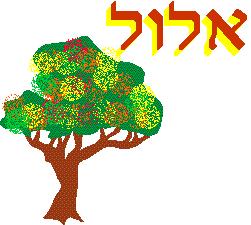
Elul: Preparing for the High Holy Days

The month of Elul, which precedes Rosh Hashanah, provides the means to prepare for the work of the New Year, the work of repentance. Genuine repentance usually takes a good deal of time. Few of us are comfortable considering our shortcomings and failings. It takes some time for us to own up to them. In addition, to truly repent from the hurt we have caused other people, we need to approach them and ask their forgiveness. Our Mishnah teaches that Yom Kippur brings atonement for transgressions we have committed against another person only after the offender has repented and been reconciled with the wronged party. In other words: If we have hurt someone, we must first apologize and make peace with that person; only then will God forgive us.
Each morning the shofar is blown to "wake us up" to the importance of repentance and the spiritual work to be done. We also read Psalm 27, which opens "The Lord is my light and my salvation," a fitting theme for those engaged in the difficult and often painful work of confronting their true selves. It is important to remember that we always can find support and comfort in God. The spiritual preparation of Elul culminates in Selichot services the Saturday night prior to Rosh Hashanah. Selichot prayers, consisting primarily of prayers for forgiveness, traditionally begin at midnight. (Many congregations plan earlier programs and gear them more toward families these days.) From Selichot until Rosh Hashanah, the special Selichot prayers are incorporated in the morning service. Just before Rosh Hashanah, the Torah covers are changed to white and often the curtain covering the ark and the cover of the reading table, as well. White is a sign of purity. During Elul, people begin planning and preparing the holiday meals and often send New Years cards to one another with the greeting "L'shanah tovah tikateivu" (May you be inscribed for a good new year).
Psalm 27 is recited each morning during Elul. It is a wonderful way to prepare for the difficult work of repentance. I have written a commentary to this psalm, which is divided into four weekly portions. You are welcome to print out the psalm to carry with you and use the commentaries. Please click here.